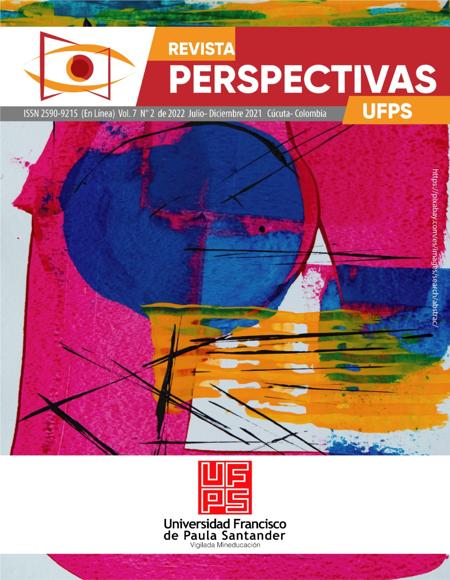Parenting practices in early childhood as technologies of power in family and educational contexts.
Prácticas parentales en infancia: tecnologías de poder, familia y educación
Main Article Content
This research with a post-structuralist epistemological approach and qualitative methodology had the objective of revealing the conditions that make it possible for the parenting practices of caregivers of early childhood children in family and educational contexts to be configured as technologies of power (procedures through which power relations are socially legitimized). Likewise, it was proposed to demonstrate the self-care practices of children configured as technologies of the self. The results made it possible to identify current parenting practices where discipline practices are still evident in both contexts. It is concluded that power relations arise in the middle of a relational triad school - family - childhood, in an apparently functional gear, thus, children are influenced by the processes of both entities and begin to witness how the family has become Foucault's terms in an "institution". Part of the practices carried out by adults are incorporated by children and become self-care practices that, according to the analysis obtained, are part of a powerful formation of technologies of the self, however, not so well achieved. at this age, but a strong constitution is expected in the next stages of the life cycle.
Downloads
Article Details
Aguilar Barreto, A., Sanguino, W., Portilla, J., & Benítez, D. (2018). Política pública para la primera infancia: alcances desde su gestión educativa. Revista Espacios, 39(52).
Aguirre-Dávila, E., Morales-Castillo, M., & Moreno-Vásquez, M. (2021). Parenting, autonomy and academic achievement in the adolescence. Journal of Family Studies, 1-14. DOI: https://doi.org/10.1080/13229400.2021.1871935
Aguirre-Dávila, E., & Chávez-Plazas, Y. A. (2022). Madres, transmisión cultural de la paz y orden discursivo sobre el cuidado. Revista Latinoamericana de Ciencias Sociales, Niñez y Juventud, 20(3), 1-20. Ariès, P. (1986). La infancia. Revista de Educación, 281, 5-17. DOI: https://doi.org/10.11600/rlcsnj.20.3.4881
de la Nación, P. G. (2006). Código de la infancia y la adolescencia. Bogotá: Colombia.
Foucault, M. (2003). El sujeto y el poder. Biblioteca Virtual Universal.
Foucault, M. (2005). La hermeneutica del sujeto/The Hermeneutics of the Subject: Cursos Del College De France, 1981-1982/Lectures at the College De France, 1981-1982 (Vol. 237). Ediciones Akal.
Foucault, M. (2009). Vigilar y castigar: nacimiento de la prisión. Siglo XXI.
Foucault, M. (2011). El gobierno de sí y de los otros: Curso del Collège de France (1982-1983) (Vol. 318). Ediciones Akal.
Foucault, M. (2012). Microfísica do poder (v. 25). São Paulo: Graal.
Foucault, M. (2016). Tecnologías del yo y otros textos afines. 12a Impres. Barcelona, Buenos Aires, México: Ediciones Paidós Ibérica, SA.
García, J. L., Heckman, J. J., Leaf, D. E., & Prados, M. J. (2020). Quantifying the life-cycle benefits of an influential early-childhood program. Journal of Political Economy, 128(7), 2502–2541. DOI: https://doi.org/10.1086/705718
Habermas, J. (2019). Perfiles filosófico-políticos. Taurus.
Habermas, J. (2018). Philosophical introductions: Five approaches to communicative reason. John Wiley & Sons.
Recas Bayón, J. (2007). Hacia una hermenéutica crítica: Gadamer, Habermas, Apel, Vattimo, Rorty, Derrida y Ricoeur. Biblioteca nueva.
Restrepo-Segura, C., & García-Peña, J. J. (2021). El agente educativo en la garantía de la protección integral de la primera infancia. El Ágora USB, 21(1), 386-401. DOI: https://doi.org/10.21500/16578031.4597
Sandoval Casillimas, C. (2011). Investigación cualitativa. Programa de investigación en teoría y métodos y técnicas de investigación social. ICFES- ARFO Editores.
Taylor, S. J., Bogdan, R., & DeVault, M. (2015). Introduction to qualitative research methods: A guidebook and resource. John Wiley & Sons.
Urízar Herrera, G. C. (2019). El cuerpo disciplinado y el ocaso de la libertad: Análisis del hospital psiquiátrico y la escuela en el pensamiento de Michel Foucault. Sincronía, 75, 104–128. DOI: https://doi.org/10.32870/sincronia.axxiii.n75.5a19







